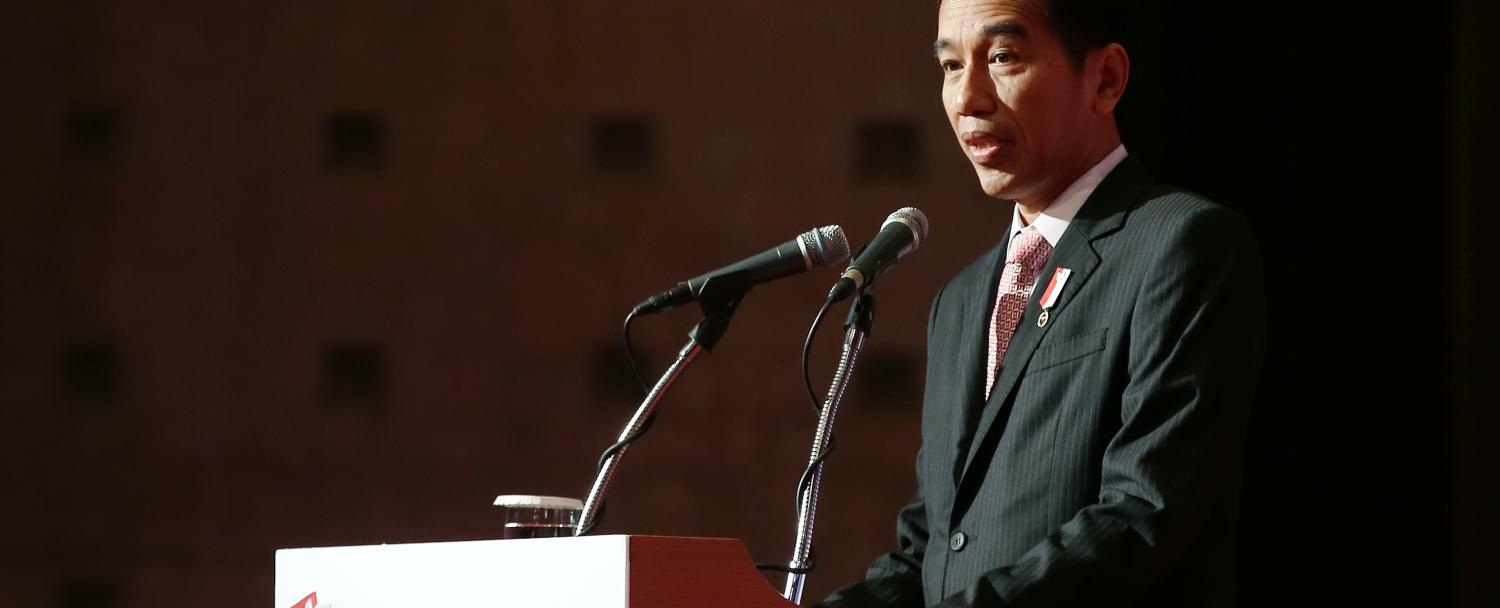Last month, Indonesian President Joko Widodo issued a stern missive to the law enforcement agencies responsible for tackling drug crime: 'Be firm, especially to foreign drug dealers who enter the country and resist arrest. Gun them down. Give no mercy because we indeed are in a narcotics emergency position now.'
Widodo's statement (his strongest language yet on drugs) has prompted international criticism and comparisons with Philippine President Rodrigo Duterte, whose notorious war on drugs has killed at least 8000 people.
The comparison to Duterte is unfair in a number of respects. Amnesty International puts the number of drug-related extrajudicial killings in Indonesia at 60 so far this year. This pales in comparison to the 80 killed across Manila in just three nights between 16–18 August. Even toddlers have been caught in the crossfire.
This is not the first time Widodo has called the drug problem a national emergency. He used similar rhetoric in 2015 before the execution of eight convicted drug smugglers, mostly foreigners (including Australians Andrew Chan and Myuran Sukumaran). While Widodo's recent statements take an even harder line, they do not signal a major departure from his longstanding position or from existing practice.
Widodo's police chief Tito Karnavian and the head of the national narcotics agency Budi Waseso have both denied Indonesia is taking a leaf out of the Philippine playbook. They say Indonesia has its own laws to protect its citizens from the drugs scourge. Police already have powers to shoot drug suspects who violently resist arrest or retaliate. And so far there has been no announcement of new policy or legislative changes that would open the door for a rise in extrajudicial killings.
Widodo will be cautious about overreaching and attracting the kind of domestic backlash that is growing in the Philippines. The anti-drugs agenda is broadly supported by Indonesians, but as the Philippines experience has shown, drugs crackdowns disproportionately affect the urban poor. At recent protests in Manila, hundreds of Filipinos carried placards accusing Duterte of targeting the poor rather than drug kingpins. With Widodo making poverty alleviation a more prominent part of his government's agenda, he will be loath to introduce any war on drugs that is perceived to be a war on the poor.
It's also unlikely that the positions taken by Widodo and Duterte are symptomatic of a wider regional drug crackdown. For example, Malaysia is set to roll back the mandatory death penalty for drug trafficking. Nevertheless, there is a risk that countries in the region could engage in a race to the bottom and progressively set aside human rights considerations in an effort to shift the drug problem outside their borders. Waseso is already claiming that Indonesia has been forced to take stronger action because the success of Duterte's drugs campaign is pushing more crystal methamphetamine (known locally as shabu) into Indonesia. Other countries may yet mount the same argument.
Australia should not overreact to Widodo's tough talk, but nor should we ignore it. Indonesian policies on this issue could affect the more than one million Australians who visit Indonesia each year. It's no coincidence that Widodo singled out foreign drug dealers in his speech, with the implication that these foreigners should be made examples of. A week earlier, a suspected drug trafficker from Taiwan, Lin Ming Hui, was gunned down by police near Jakarta as he tried to escape.
Drug cases have seriously strained Australia's relations with Indonesia in the recent past. Australia's domestic policy on illicit drugs takes a harm minimisation approach that would be considered permissive by Indonesian standards and by most of our Asian neighbours. Many Indonesians viewed Australia's pleas to stay the executions of Chan and Sukumaran as hysterical and insulting to Indonesia's sovereign right to enforce their laws. The prospect of an Australian being caught up in another trafficking case in Indonesia would be a diplomatic nightmare.
Public advocacy and private protests from Australia are unlikely to soften Indonesia's stance on drugs. It certainly didn't work in 2015. If anything, Widodo may ramp up the popular campaign in the run-up to the 2019 presidential race as he competes against more hardline candidates.
More pragmatic efforts could be directed towards deterring Australians from doing the wrong thing in the first place. A few lines of caution on the SmartTraveller website is a start, but as Cassie Sainsbury and other examples show, it's not nearly enough. In 2015-16, over a third of Australians in prison overseas (149 out of 391) were there for drug-related offences. There needs to be a more concerted effort to warn our intrepid Australians that some countries see drugs as an existential threat to security and society and will not hesitate to impose harsh penalties on offenders. Target the campaign to every university campus, STA Travel outlet and travel doctor until the message sinks in. Lives, and diplomatic relationships, might depend on it.

